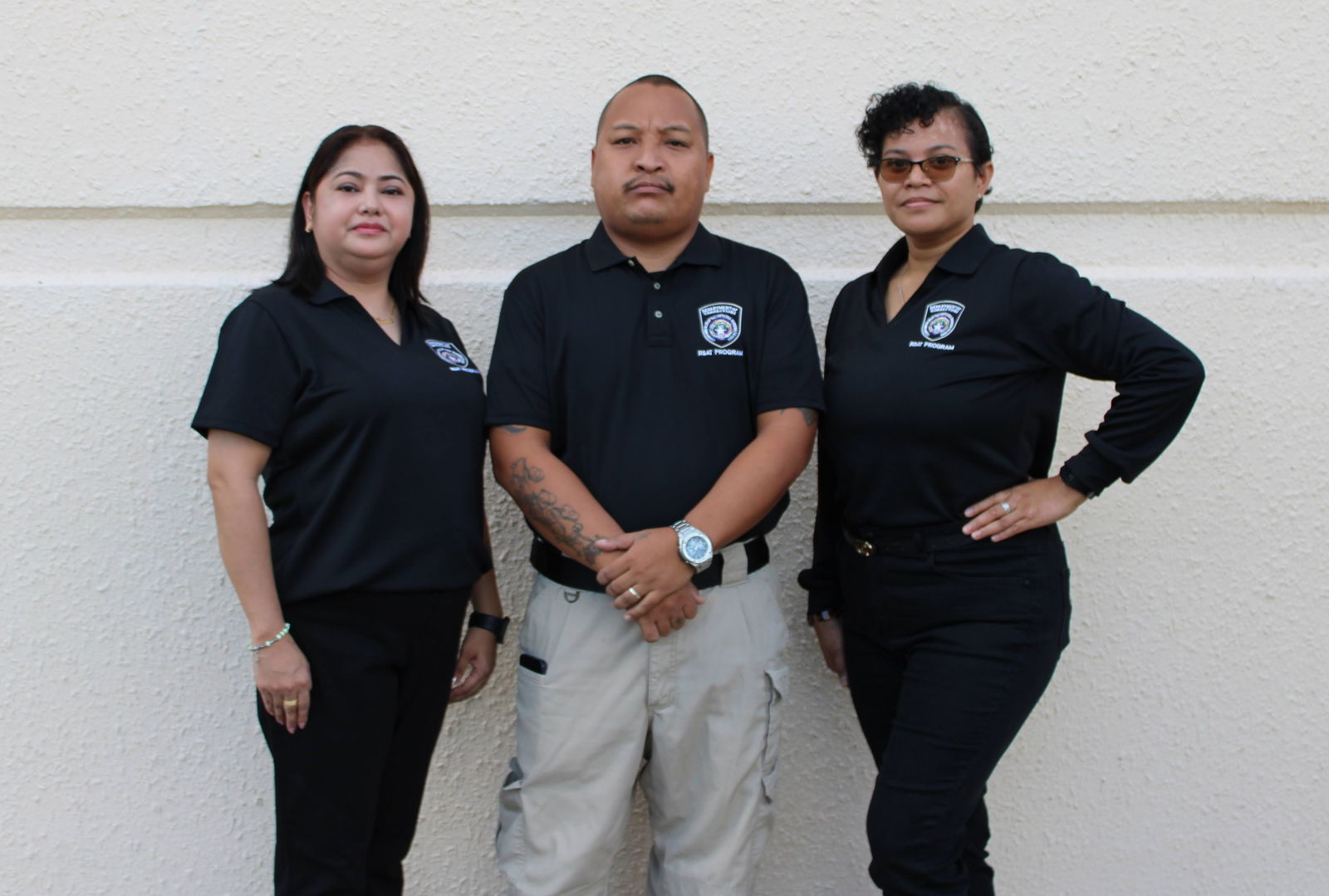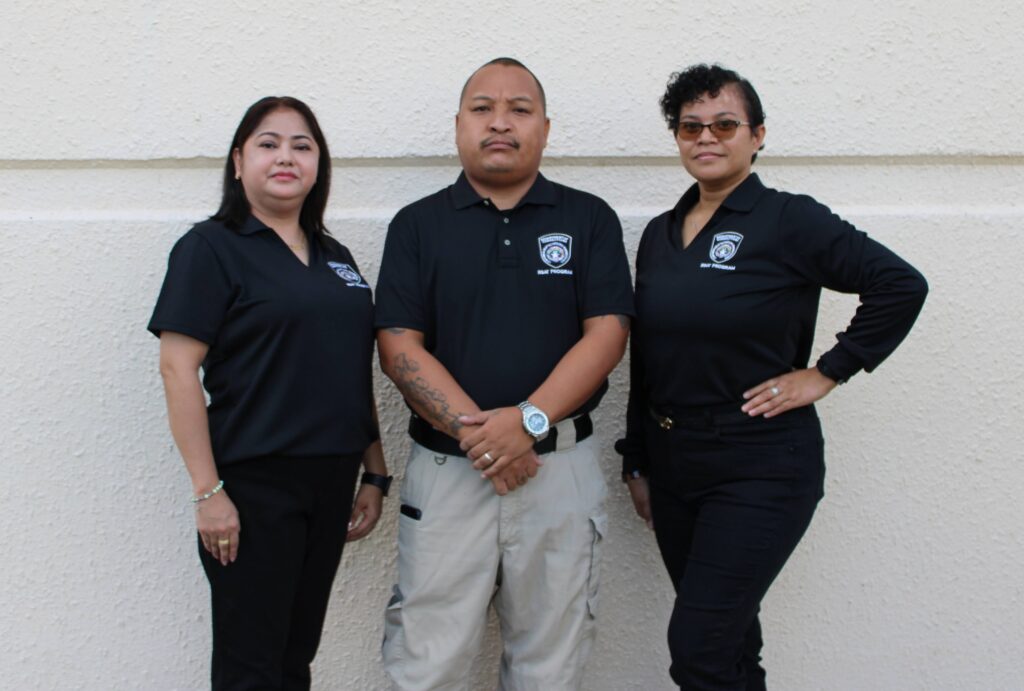
CNMI Department of Corrections Residential Substance Abuse Treatment Program staff, from left: Maria Sarah Javier, counselor; Jason Camacho, program coordinator; and Carmen Iba, program lead.
Department of Corrections photo
THE Department of Corrections is reinforcing its commitment to rehabilitation by continuing the CNMI Residential Substance Abuse Treatment or RSAT Program. With funding secured by the Criminal Justice Planning Agency, Corrections is expanding its capacity to provide essential treatment for substance use disorders and mental health services to incarcerated individuals in need.
The RSAT Program was made possible through a collaborative partnership with the Bureau of Justice Assistance, the National Training and Technical Assistance Center, and the Training and Technical Assistance network. The department also acknowledges and thanks consultant DeVon Simmons for his guidance and expertise throughout the planning and implementation process.
As the CNMI’s sole state correctional facility, the department has prioritized rehabilitation as a core element of its mission. The RSAT Program plays a vital role in this effort by delivering evidence-based, residential treatment to inmates struggling with substance use and co-occurring mental health disorders. Based at the Corrections facility on Saipan, the program also includes comprehensive reentry services to help participants successfully transition back into the community.
“Our approach to providing treatment is holistic. Through a structured curriculum, we teach participants healthy coping skills related to their environment, relationships, finances, physical wellness, and more,” said Carmen Iba, program lead.
“Everyone deserves a second chance, and we hope to help our participants re-enter society as productive and law-abiding citizens,” said Maria Sarah Javier, RSAT counselor.
“The RSAT Program is focused on progress, not perfection,” said Jason Camacho, RSAT program coordinator. “Substance abuse is a difficult adversity to overcome, but while our participants are serving their time, it’s inspiring to also see them make the decision to better their lives before their release.”
The expected outcomes of this initiative include continued participation in the jail-based residential treatment program, expanded access to mental health services for incarcerated individuals, and improved reentry support to facilitate successful reintegration into society.
“The Department of Corrections remains steadfast in its mission to rehabilitate and reintegrate individuals,” said Commissioner, Anthony Torres. “Through the RSAT Program, we are taking meaningful action to address substance use disorders, support mental health, and set individuals on a path toward a more stable future.”
As the direct implementer of this program, the department continues to align its rehabilitation efforts with best practices for inmate recovery and reintegration. Pre-release and post-release offenders, including pretrial detainees, are the intended beneficiaries of the program, ensuring that those impacted by substance use disorders receive the necessary care to support their recovery and reintegration.
The department is actively preparing for full program implementation, including the repurposing of existing facility space and the recruitment of qualified staff to provide direct services to participants. The department’s goal is to foster a supportive and accountable environment that helps individuals address the root causes of addiction and make meaningful progress toward recovery and reintegration.











